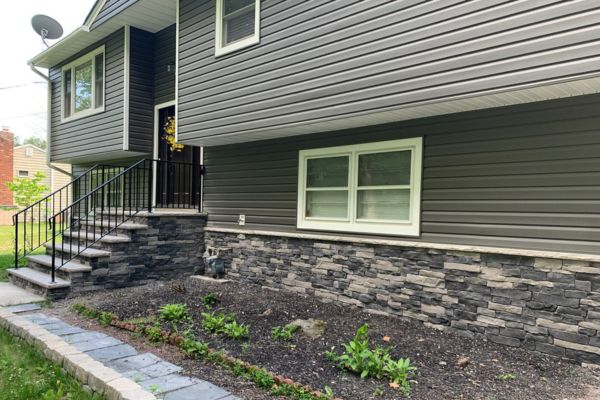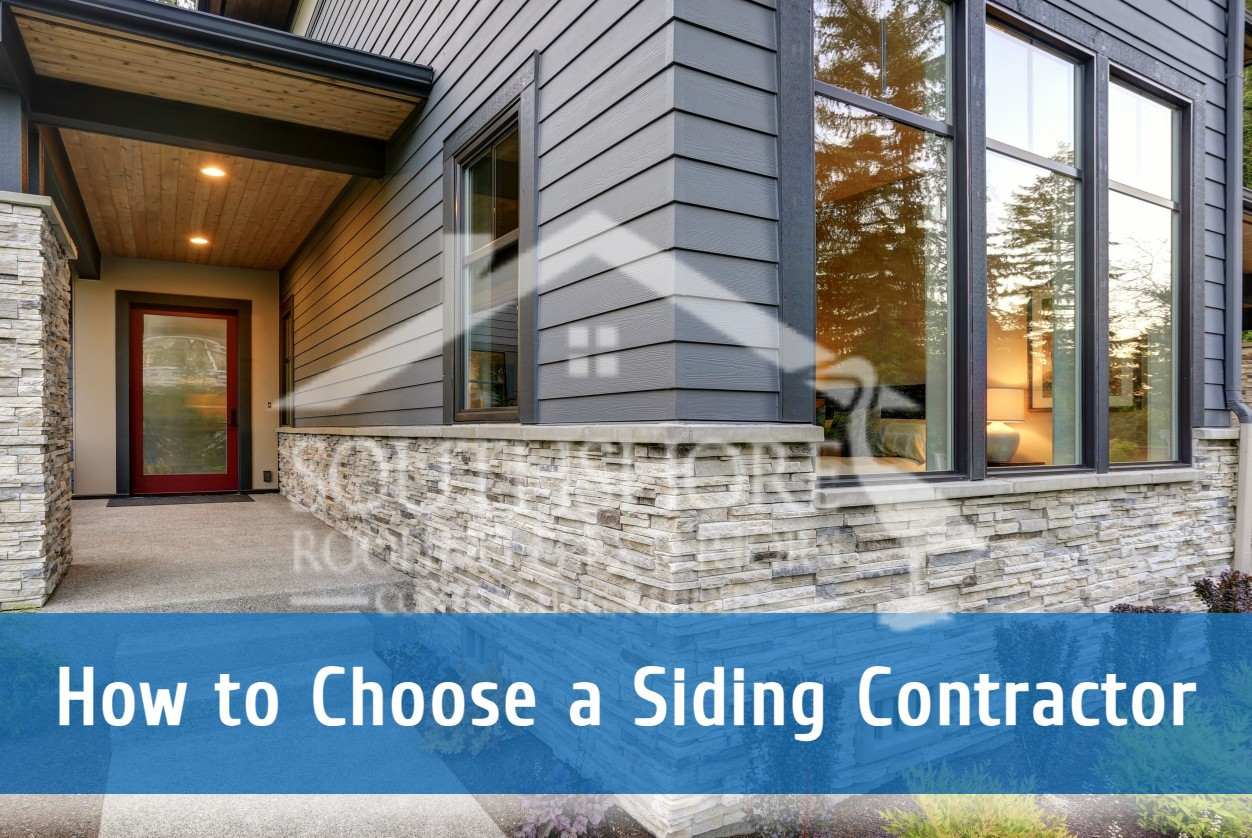Superior Morris Siding Contractor with Comprehensive Siding Services
Superior Morris Siding Contractor with Comprehensive Siding Services
Blog Article
The Necessary Guide to the Different Sorts Of Siding and Their Special Benefits
In the realm of home improvement, selecting the best house siding is an essential choice that influences both aesthetic charm and practical performance. With so numerous options to consider, which exterior siding material really stands out for your particular project?
Wood House Siding
Timber siding, a prominent choice for residential outsides, uses an ageless aesthetic that integrates natural appeal with structural integrity. This house siding product is offered in various designs, consisting of clapboard, shingles, and board-and-batten, permitting home owners to personalize their appearance to match their layout preferences. Wood house siding is normally crafted from resilient varieties such as cedar, redwood, or yearn, which are understood for their strength and capacity to stand up to environmental stress factors.
One of the main benefits of timber siding is its superb insulation buildings, which can add to power effectiveness and lower home heating costs. Furthermore, wood exterior siding is biodegradable, making it an eco-friendly choice when sourced sustainably. Regular maintenance, including paint or staining, can extend its life-span and improve its look, allowing homeowners to maintain the natural appeal of the timber.
However, potential disadvantages consist of susceptibility to insects, rot, and climate damages, necessitating appropriate therapy and upkeep - morris siding contractor. Despite these issues, when effectively cared for, wood home siding can give a stunning and sturdy remedy that enhances the character of a home while providing a cozy, inviting environment

Vinyl Siding
Plastic home siding has arised as a leading choice for home owners seeking a low-maintenance outside choice that combines durability and cost. This versatile product is crafted from polyvinyl chloride (PVC), making it resistant to different weather, consisting of moisture and UV rays. Therefore, vinyl home siding does not warp, rot, or fade, making sure durable aesthetic allure.
One of the main advantages of vinyl house siding is its substantial variety of colors and styles, enabling home owners to attain the desired search for their residential or commercial property without the demand for frequent repainting. Furthermore, plastic home siding is easy to set up, which can dramatically reduce labor expenses throughout building and construction or restoration projects.
Vinyl exterior siding additionally adds to power efficiency. Numerous options function insulation support, which improves thermal performance, assisting to keep comfy interior temperatures and potentially reducing energy expenses. Its smooth surface facilitates easy cleaning, needing just routine cleaning with a yard pipe to eliminate dirt and debris.
Fiber Cement Exterior Siding
Fiber concrete home siding has acquired traction among homeowners and builders alike because of its amazing combination of durability and visual convenience. Made up of a combination of sand, cellulose, and concrete fibers, this house siding alternative is crafted to endure extreme weather, including high winds, hefty rainfall, and temperature level variations, making it a resilient option for household exteriors.

Among the main advantages of fiber cement house siding is its resistance to insects, such as termites, and its non-combustible nature, offering boosted fire security. morris siding contractor. Additionally, it is readily available in a broad selection of colors, designs, and appearances, allowing house owners to achieve their preferred visual without sacrificing efficiency
An additional advantage is its low upkeep needs; fiber cement house siding usually calls for painting or staining every 5-10 years, which is less regular than various other products. In addition, its longevity adds to a reduced general cost of ownership, as it decreases the demand for frequent repair work or substitutes.
Inevitably, fiber concrete home siding stands for an excellent investment for those seeking a resilient, attractive, and versatile exterior alternative, combining both form and function to enhance the home's aesthetic allure.
Steel House Siding
The attraction of steel house siding exists in its durable toughness and modern-day visual charm, making it a popular choice for modern style. Offered click here for info in materials such as aluminum and steel, steel house siding provides a variety of shades and surfaces, enabling homeowners to achieve a personalized appearance that enhances their design vision.

Energy effectiveness is an additional substantial benefit, as several steel siding items are made with insulation alternatives that aid manage interior temperature levels. This can bring about lowered power costs in time. Additionally, metal siding is frequently recyclable, making it an eco-friendly choice for sustainability-minded house owners.
The installment procedure for metal exterior siding can be relatively straightforward, causing a quicker turn-around time for building tasks. On the whole, steel home siding integrates functionality and design, making it a functional choice for those seeking a visually attractive Read Full Report and long-lasting exterior finish.
Block and Rock Exterior Siding
Brick and rock exterior siding stands apart as a classic option that improves the visual charm of any type of home. Known for their durability and reduced maintenance, these products offer a phenomenal roi while elevating the property's aesthetic appeal. Readily available in different shades, structures, and patterns, block and stone can be customized to fit varied architectural designs, from traditional to modern.
One of the main benefits of brick and stone house siding is their energy effectiveness. Both materials have natural protecting residential or commercial properties that assist manage interior temperatures, possibly lowering heating & cooling prices. Additionally, they use premium fire resistance contrasted to other home siding alternatives, adding to enhanced safety.
One more benefit is their durability. Brick and stone can last for years, usually requiring minimal upkeep beyond occasional cleaning. Unlike timber house look here siding, they are unsusceptible pests and rot, guaranteeing a resilient exterior that stands up to the aspects.
Final Thought
In recap, the choice of siding considerably affects a home's aesthetic allure, energy effectiveness, and upkeep demands. Each kind of home siding-- whether wood, plastic, fiber brick, metal, or concrete and stone-- supplies special advantages tailored to numerous property owner choices and environmental problems.
One of the primary advantages of timber home siding is its outstanding insulation residential or commercial properties, which can add to energy effectiveness and reduced heating expenses. Additionally, wood exterior siding is biodegradable, making it an ecologically pleasant option when sourced sustainably.One of the main advantages of metal exterior siding is its resistance to numerous ecological aspects.Energy effectiveness is an additional substantial advantage, as lots of steel siding products are developed with insulation alternatives that aid regulate indoor temperature levels. Each kind of house siding-- whether wood, vinyl, fiber brick, metal, or cement and stone-- uses one-of-a-kind advantages tailored to various property owner choices and ecological problems.
Report this page